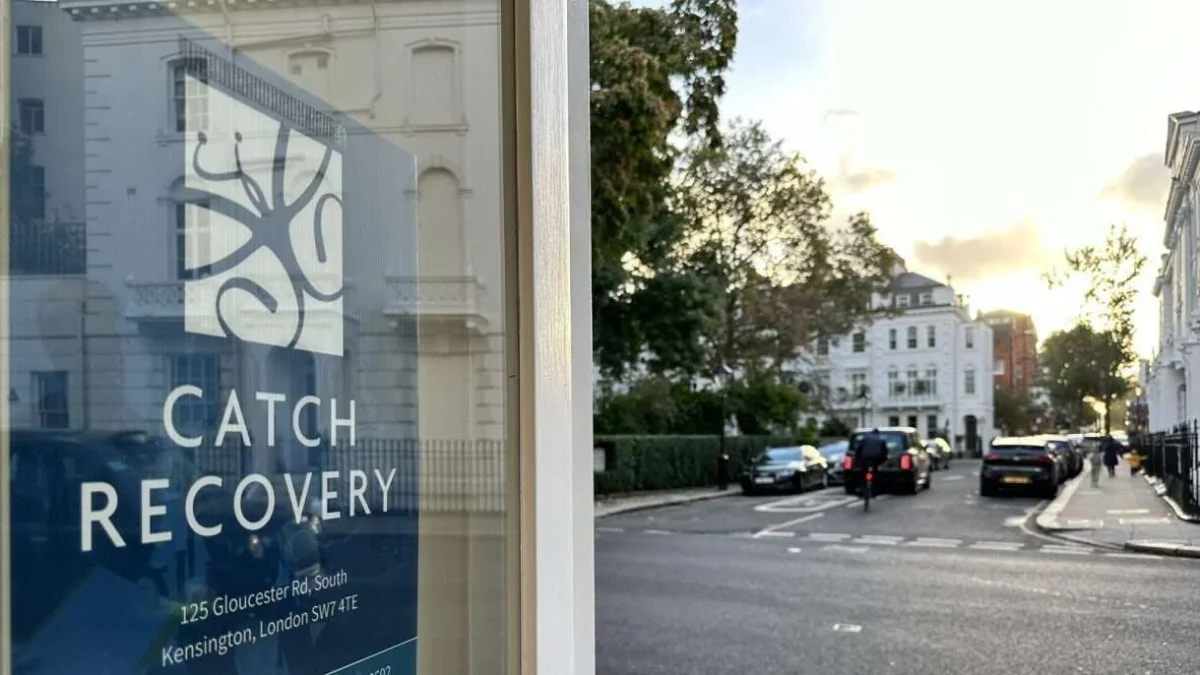
Are You Worried About the Effects of Alcohol?
Some people report a tightness or pressure in their chest after heavy drinking. While this can be alarming, it is not always a sign of a serious condition, but it should never be ignored.
Chest pain after drinking alcohol can be frightening, often causing people to jump to the conclusion that they are experiencing a heart attack or another medical emergency.
While experiencing pain in the chest after drinking alcohol may not necessarily be a sign of heart problems, chest pain should never be ignored.
Long-term alcohol addiction and misuse can have serious consequences for physical health, including increased risk of heart and liver disease, pancreatitis and certain cancers. If you or someone you know experiences chest pain due to alcohol misuse or addiction, it’s important to know the facts.1
Table of Contents
Causes of Chest Pain After Drinking Alcohol
Alcohol-related chest pain can happen for a number of different reasons. This is because alcohol can affect numerous systems of the body, for example, the heart and blood vessels, the gastrointestinal system and the brain.
Below are some examples of conditions that can cause chest pain after drinking alcohol.
Acid Reflux
Stomach contents should only shift in one direction: down. Acid reflux happens when stomach acid rises into your food pipe, or oesophagus, and into your mouth. This can cause an unpleasant taste and can irritate and inflame the oesophagus. It also brings about a burning sensation in the chest, known as heartburn.
Drinking alcohol can cause acid reflux as it relaxes the muscles at the base of the oesophagus, allowing stomach contents to travel upwards. Other lifestyle habits associated with drinking, such as smoking and unhealthy eating habits, can also cause acid reflux.
Over time, acid reflux can damage the oesophagus. If you have recurrent episodes, you may be diagnosed as having gastro-oesophageal reflux disease (GORD). This is a common health condition that can, over time, lead to complications, such as scarring and narrowing of the oesophagus and oesophageal cancer.2,3
Cardiovascular Problems
High Blood Pressure
The heart typically pumps blood around the body at a regulated pressure. However, excessive alcohol consumption over time or in binge drinking episodes can raise blood pressure.
High blood pressure can cause a feeling of tightness or pain in the chest. This occurs due to reduced blood flow and supply of oxygen to the heart.
Over time, high blood pressure and alcohol misuse can lead to abnormal heart rhythms (arrhythmias), heart failure and heart muscle disease (cardiomyopathy). These are all potential causes of chest pain after drinking alcohol.4,5
Cardiomyopathy and Arrhythmias
Excessive alcohol consumption can damage the heart muscle and impair its ability to pump blood normally. This is known as ‘cardiomyopathy’. Alcohol-related cardiomyopathy is a serious health condition that can lead to irregular heart rhythms, known as arrhythmias. Both of these conditions bring about pain in the chest and can be life-threatening in some cases.
Drinking excessive amounts of alcohol in binge drinking episodes can also cause your heart to beat irregularly. This leads to a condition known as ‘Holiday Heart Syndrome’. People who experience this arrhythmia typically consume 15 or more units of alcohol within a 24-hour period. Holiday Heart Syndrome impacts your blood pressure, making you feel unwell and can increase the risk of serious complications, including heart rhythm problems and, in rare cases, cardiac arrest.6-8
Angina
Angina is chest pain caused by reduced blood flow to the heart. This can feel like a tight, heavy or dull sensation in the chest. Angina tends to be a symptom of underlying heart disease and narrowed arteries.5,9
If you drink heavily, particularly over extended periods of time, this can damage your heart and blood vessels. This is known as ‘cardiovascular disease’, a condition that can cause fatal heart disease and stroke.6
Anxiety and Panic Attacks
Anxiety, or feelings of intense worry about something bad happening, can occur after alcohol consumption. This can lead to chest pain after drinking alcohol, as well as symptoms of intense anxiety or panic attacks, such as shortness of breath and the sensation of your heart racing in your chest.
By slowing down activity in the brain and nervous system, alcohol can make you feel more relaxed. However, regularly heavy drinking can cause a rebound effect; after the initial pleasant effects, the central nervous system becomes affected by the decrease in alcohol levels and can go into ‘fight or flight’ mode. This reaction is similar to that of an anxiety disorder, which can cause intense anxiety with symptoms that mimic those of a heart attack. While panic attacks can feel very distressing, they are not usually harmful in themselves, but you should seek help and advice from a GP if you experience frequent or severe panic attacks. If you’re finding it difficult to reduce your alcohol intake despite experiencing negative consequences, this could be a sign of alcohol dependence, and it’s important to speak to a healthcare professional.5
Pancreatitis
Alcohol can cause inflammation and damage to the pancreas, an important organ for digestion and blood sugar regulation. This can lead to acute (sudden onset) or chronic (long-term) pancreatitis. Prolonged alcohol misuse is one of the most common causes of this condition. Symptoms of pancreatitis include vomiting, fever, yellowing of the eyes and skin (jaundice) and severe abdominal pain that can spread to the chest.5,6
Chronic Alcohol Misuse and Heart Disease
Heavy alcohol intake, particularly over extended periods, can cause problems with your heart and blood vessels. This can lead to diseases affecting the heart itself (heart disease) and diseases affecting the heart and blood vessels (cardiovascular disease).
Regularly consuming more than the recommended 14 units of alcohol per week raises your risk of developing heart disease. At this level, your blood pressure can remain high, a condition known as ‘hypertension’. This condition can be caused by alcohol’s effects on the heart or by weight gain caused by increased calorie intake from alcohol.
Prolonged alcohol misuse can also impair the heart’s ability to pump blood effectively. This is known as ‘cardiomyopathy’, a condition that can lead to heart failure.
Coronary heart disease (CHD) is the most common type of heart disease in the UK. This condition occurs when arteries in the heart (coronary arteries) become gradually blocked off by fatty deposits. The narrowed arteries struggle to supply the heart with the oxygen and nutrients needed for it to function well. This can bring about symptoms like angina and can lead to chronic heart failure or minor heart attacks.
It is important to remember that the effects and risks of alcohol outweigh any potential benefits, even at low drinking levels. If you are struggling with alcohol misuse or addiction, reducing or stopping use can lead to vast and rapid improvements in cardiovascular health. Within a few days, your blood pressure can improve, and conditions like alcohol-related cardiomyopathy can resolve over time.6,7
Mitigating Symptoms of Alcohol-Related Chest Pain
If you have been noticing chest pain after alcohol consumption, you should5:
- Aim to stay within low-risk drinking guidelines or stop drinking altogether
- Include several alcohol-free days each week if you continue drinking
- Aim to improve your diet, exercise levels and stress management
- Stop smoking
- Speak to your doctor, as you may have an underlying health issue, like cardiovascular disease, caused by heavy drinking
If you feel unable to moderate or control your alcohol intake, you may be suffering from an alcohol use disorder, and if, after drinking alcohol, chest pain arises, it is important to seek professional addiction treatment to prevent chest pain and reduce the risk of further health complications.1
When To Seek Help
Chronic, heavy consumption of alcohol can cause cardiovascular disease, which puts you at risk of a heart attack. Although chest pain after drinking alcohol isn’t always related to heart attacks, it is important to know the signs.
You should never dismiss chest pain, as it could indicate a serious, potentially life-threatening issue. The most common symptom of a heart attack is chest pain, along with other primary symptoms. If you experience chest pain when drinking alcohol, it could be a symptom of a heart attack.5
Main heart attack symptoms 5,11:
- Chest pain
- This can range from minor to severe pain and can be persistent or come and go
- Tends to feel like pressure, tightness, heaviness or squeezing across the chest
- Chest pain can spread to other places, like the arms, jaw and back
- Difficulty breathing
- Dizziness
- Sweating
- Feeling or being sick (nausea or vomiting)
- Intense anxiety
- Wheezing or coughing
Another reason to seek professional help is to address symptoms of an alcohol use disorder, or addiction. If you’ve been told that your health problems are related to your alcohol intake, but you still feel like you can’t control your drinking habits, there is help available. Struggling to manage alcohol intake despite knowing it’s causing you harm is a sign of addiction.
If you or someone you know is struggling with alcohol misuse, there is help available. Talking to your GP and seeking specialist support can help you recover mentally and physically from the damaging effects of alcohol.1
Concerned About Alcohol?
If you are worried about the effects alcohol may be having on your health and well-being, or if you are already struggling with alcohol chest pain, or a pain in the chest after drinking alcohol, it is important to reach out for guidance and support from your GP or health professional. Discussing your drinking habits and any symptoms you’re experiencing with a medical professional can be hugely beneficial and potentially life-saving. It may also help you to moderate drinking and regain control.
At CATCH Recovery, we provide rehabilitation programmes to help people address and overcome alcohol addiction. Our friendly and experienced clinical team delivers evidence-based therapies to support you throughout your journey of recovery from alcohol addiction. Our treatment plans are personalised and grounded in the 12 Step model to ensure that social, emotional and physical aspects of addiction are addressed effectively.
If you are having chest pains after alcohol consumption, and now feel ready to take the first step, reach out for a free, confidential assessment. Contact us today to find out how we can help you.
What’s Next?
Are you experiencing a pain in the chest after alcohol consumption? If you are looking for support for alcohol addiction, contact our team to access confidential support and guidance on the services we provide, both in-person and online. You can also view Our Locations to find your nearest service or look up our online treatment options.

Alcohol Addiction
Learn more about alcohol addiction, the symptoms, and what’s next.

Alcohol Rehab
Find out about the rehab services we provide to treat alcohol addiction.

Contact Our Team Today
Frequently Asked Questions
-
Can Alcohol Cause Chest Pain?
Yes, alcohol can cause chest pain. Sometimes alcohol chest pain is related to the heart and blood vessels, but it can also be caused by other conditions like acid reflux or intense anxiety. Excessive, prolonged alcohol misuse increases the risk of alcohol chest pains and cardiovascular disease. This raises the risk of serious causes of chest pain, like heart attacks.5
-
Should I Stop Drinking if I Experience Chest Pain?
Experiencing chest pain after drinking should always be taken seriously. This could be a sign of an underlying health condition that requires treatment. Cutting down or stopping alcohol intake and consulting your GP for advice are helpful steps for reducing health risks.5
If you have a heart condition, drinking alcohol increases the risk of serious health consequences. By reducing or stopping drinking, you can quickly improve your heart health.7
-
When Should I See a Doctor for Chest Pain After Drinking?
You should talk to your GP if you experience alcohol-related chest pain. Discussing your alcohol intake and symptoms can help to identify the cause of your chest pain and help you find appropriate treatment.
If the chest pain is accompanied by other symptoms, like shortness of breath, nausea and dizziness, you could be having a heart attack. If you, or someone around you is experiencing symptoms of a heart attack, you should call 999 and seek medical help immediately.5
-
Can Binge Drinking Cause Chest Pain?
Episodes of heavy drinking, or binge drinking, can trigger conditions like anxiety, angina and acid reflux, all of which can cause chest pain.5
Binge drinking can also cause your heart to beat differently, in an irregular rhythm. This is known as ‘Holiday Heart Syndrome’, a condition that causes you to feel unwell and increases your risk of heart attacks and sudden death.6
-
References
- NHS. Alcohol Misuse. https://www.nhs.uk/conditions/alcohol-misuse/. [Accessed April, 2025].
- NHS Inform. Gastro-oesophageal reflux disease (GORD). https://www.nhsinform.scot/illnesses-and-conditions/stomach-liver-and-gastrointestinal-tract/gastro-oesophageal-reflux-disease-gord/#about-gastro-oesophageal-reflux-disease-gord. [Accessed April, 2025].
- Taylor Chavoustie, C., and MacGill, M. (2023). What is Acid Reflux? https://www.medicalnewstoday.com/articles/146619. [Accessed April, 2025].
- Puddey IB, Beilin LJ. Alcohol is bad for blood pressure. Clin Exp Pharmacol Physiol. 2006;33(9): 847–52. doi: 10.1111/j.1440-1681.2006.04452.x.
- Carter, A., and Sissons, B. (2022). Can drinking alcohol cause chest pain? https://www.medicalnewstoday.com/articles/alcohol-chest-pain. [Accessed April, 2025].
- drinkaware. Alcohol and the Heart. https://www.drinkaware.co.uk/facts/health-effects-of-alcohol/alcohol-related-diseases-and-illnesses/alcohol-and-the-heart. [Accessed April, 2025].
- British Heart Foundation. (2025). Alcohol and Heart Disease: What Are the Risks? https://www.bhf.org.uk/informationsupport/heart-matters-magazine/medical/effects-of-alcohol-on-your-heart. [Accessed April, 2025].
- Cardiomyopathy UK.
Arrhythmias. https://www.cardiomyopathy.org/about-cardiomyopathy/related-disorders/arrhythmias. [Accessed April, 2025]. - NHS. Angina. https://www.nhs.uk/conditions/angina/symptoms/. [Accessed April, 2025].
- NHS. Symptoms of a Heart Attack. https://www.nhs.uk/conditions/heart-attack/symptoms/. [Accessed April, 2025].